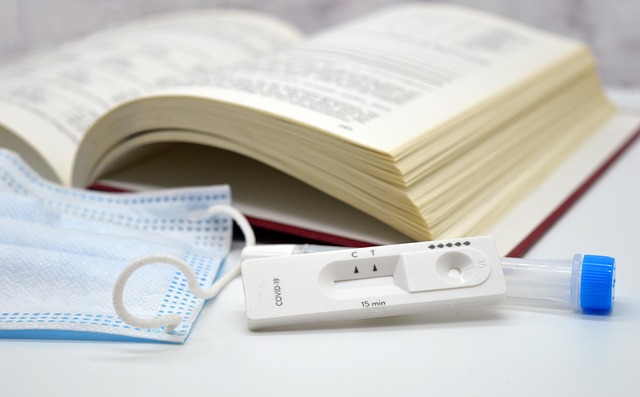A diabetes blood test is a crucial method for early detection and management of the chronic condition. By drawing a small sample from the finger, glucose levels are measured, indicating normal ranges or potential issues like prediabetes or diabetes, which require further testing. Regular monitoring through these tests allows informed decisions about lifestyle adjustments, medication, and overall care, facilitating better control, preventing complications, and maintaining a high quality of life for individuals with diabetes.
Diabetes, an ever-growing global concern, demands proactive management. Early detection through diabetes blood tests is a powerful tool in fighting this prevalent condition. These routine checks provide invaluable insights into glucose levels, offering crucial information for effective management strategies. By understanding the implications of these tests, individuals can take control of their health, prevent severe complications, and significantly enhance their quality of life.
- Understanding Diabetes Blood Tests: What to Expect and Why It Matters
- Early Detection and Management: How Regular Checks Can Prevent Complications and Improve Quality of Life
Understanding Diabetes Blood Tests: What to Expect and Why It Matters
A diabetes blood test is a crucial tool in managing and detecting this chronic condition early on. This simple procedure involves drawing a small sample of your blood to check for glucose levels, providing valuable insights into your overall health. During a typical diabetes blood test, a healthcare professional will use a needle to extract a drop of blood, often from the finger, although other sites like arms or veins can also be used. The sample is then analyzed in a laboratory using advanced equipment to determine the amount of glucose present.
Understanding the results of this test is essential for effective management. Normal blood sugar levels vary throughout the day, but consistently high readings could indicate prediabetes or diabetes. If your test result falls outside the normal range, further testing may be required to confirm a diagnosis. Regular monitoring through diabetes blood tests helps in making informed decisions about lifestyle changes, medication, and overall care, ensuring better control of the condition and preventing potential complications.
Early Detection and Management: How Regular Checks Can Prevent Complications and Improve Quality of Life
Early detection and regular management of diabetes through routine blood tests are key to preventing severe complications and maintaining a high quality of life. These tests allow healthcare providers to identify prediabetes, a condition where blood sugar levels are higher than normal but not yet high enough to be diagnosed as type 2 diabetes. By catching prediabetes early, lifestyle changes such as improved diet and increased physical activity can often prevent or delay the onset of full-blown diabetes.
Regular diabetes blood tests also help monitor blood sugar levels over time, enabling healthcare providers to adjust treatment plans accordingly. This proactive approach can significantly reduce the risk of diabetic complications, including nerve damage, kidney disease, eye problems, and cardiovascular disease. By keeping blood sugar levels under control, individuals with diabetes can live active lives and experience improved overall health.
A diabetes blood test is a powerful tool for early detection and management, allowing individuals to take control of their health. By understanding the importance of regular checks, people can prevent potential complications and significantly improve their quality of life. Early intervention through diabetes blood tests enables better glycemic control, reducing the risk of long-term health issues. This simple yet effective step is a game-changer in managing this chronic condition.
